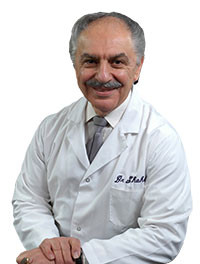Pervasive Developmental Disorders in Midland Park, NJ

Pervasive developmental disorders (PDD) was an umbrella term used to identify five different conditions that impact a child's development and behavior. These conditions included autism, Asperger's syndrome , childhood disintegrative disorder, Rett syndrome, and a general catch-all called pervasive developmental disorder not otherwise specified (PDD-NOS). As of 2013, most of these diagnoses have are no longer listed in the Diagnostic and Statistical Manual (DSM). All of these disabilities besides Rett syndrome have now been categorized as autism spectrum disorder. Rett syndrome and autism spectrum disorder are now characterized as neurodevelopmental disorders along with ADHD, communication disorders, intellectual disabilities, and others.
Autism spectrum disorder and Rett syndrome can be managed with the right therapy practices and lifestyle accommodations. To make an appointment with a qualified healthcare practitioner in Midland Park who specializes in neurodevelopmental disorders, call (201) 806-6099 or contact Dr. M.T. Shahab online.
Understanding Pervasive Development Disorders
The pervasive developmental disorders were once divided into the following diagnoses:
Autism
Autism, or autism spectrum disorder, is defined by the Autistic Self-Advocacy Network as a developmental disability. Characteristics of autistic people are diverse, and can include:
- Unusual sensitivity to certain stimuli; overstimulation may result in a potentially self-harming fight-or-flight response (meltdown)
- Non-standard ways of learning and approaching problem solving, such as struggling with addition but being skilled at calculus
- Special interests, which are deep, passionate interests in specific subjects
- Atypical, often repetitive, and sensory-seeking movement; stimming--self-stimulatory repetitive behavior--may be used to self-soothe, focus, or express distress or excitement
- A need for consistency, routine, or order; disruptions in routine may cause distress or meltdowns
- Difficulties understanding and expressing speaking and non-speaking communication; some autistic people may never speak but use sign language or augmentative and alternative communication (AAC), while others may become non-speaking under stress
- Difficulties understanding and expressing typical social interaction behavior, such as being uncomfortable with eye contact or not understanding sarcasm
- Communication that is extremely self-referential, especially when expressing empathy
- Unusual emotional responses, either blunted or overly extreme
- Coarse movements or clumsiness
- Repeating theirs or others' words (echolalia)
- Poor ability to identify hunger, thirst, need for sleep, or need to eliminate (interoception)
Conditions that used to be classified as pervasive developmental disorders but have now been combined into autism spectrum disorder are:
- Childhood disintegrative disorder: Once defined as a condition in which a child develops normally, but between the ages of 2 and 10, experiences a rapid decline in neurodevelopmental faculties.
- Asperger's syndrome: Was often described as the mild version of autism.
- Pervasive development disorder not otherwise specified (PDD-NOS): Referred to any set of symptoms that fit some of the general pervasive developmental disorder criteria, but not enough to fit one specific diagnosis.
Rett Syndrome
Rett syndrome shares many neurodevelopmental characteristics with autism, but also has characteristics of underdeveloped physical abilities, mainly motor issues like the inability to use the hands or walk. While this condition is a neurodevelopmental disorder that has much in common with autism spectrum disorder, the two are separate diagnoses.
Why Are These Conditions Now Called Autism Spectrum Disorder?
There are several reasons why many conditions previously called pervasive developmental disorders are now labeled autism spectrum disorder. One reason is because many of these disorders share the trait of having difficulty with both verbal and non-verbal communication. Many people diagnosed with PDDs have a hard time conveying and understanding facial expressions, hand gestures, and highly colloquial or sarcastic language, which translates into them having difficulty in social situations, mainly trouble relating to others. Other commonalities among pervasive developmental disorders are a difficulty with ambiguity/change, and a sensitivity to sounds.
Treatment of Autism Spectrum Disorder and Rett Syndrome
Autism spectrum disorder and Rett syndrome are lifelong conditions, and fostering understanding between patients and their caretakers is crucial; parents or caretakers may feel distress when their child is diagnosed as autistic or with Rett syndrome, but it is possible to care for their needs if one can learn to understand their experiences.
The first step of fostering understanding is to determine the areas in which a disabled person may struggle, and put together a plan to help accommodate their specific needs. Patients and caretakers often work with a team of dedicated specialists to help with this. These physicians-- including neurologists , internists, speech pathologists, and psychologists --work to help patients form new skills, and determine which accommodations they may need at school and work. Teaching the importance of social skills may help a patient diagnosed with an autism spectrum disorder or Rett syndrome navigate life more easily. Medications may also help reduce the accompanying anxiety that is often comorbid with these disabilities.
Regardless of the specific condition, autism spectrum disorder and Rett syndrome are manageable. If you've witnessed or suspect developmental delays in your child, share your concerns with a healthcare provider. As with many conditions, early diagnosis offers the best chance at finding solutions. Call (201) 806-6099 or contact Dr. M.T. Shahab online. Request more information about autism and Rett syndrome treatment in Midland Park today.
Medwell Orthopedics & Functional Medicine for Men & Women
Address
33 Central AveMidland Park, NJ 07432
(201) 806-6099
www.BergenCountyDoctors.com
Hours
Mon:
8:00 am - 8:00 pm
Tue:
2:00 pm - 7:00 pm
Wed:
8:00 am - 6:30 pm
Thu:
8:00 am - 1:00 pm
Fri:
8:00 am - 6:30 pm
Sat:
9:00 am - 1:00 pm
Sun:
By Appointment Only


